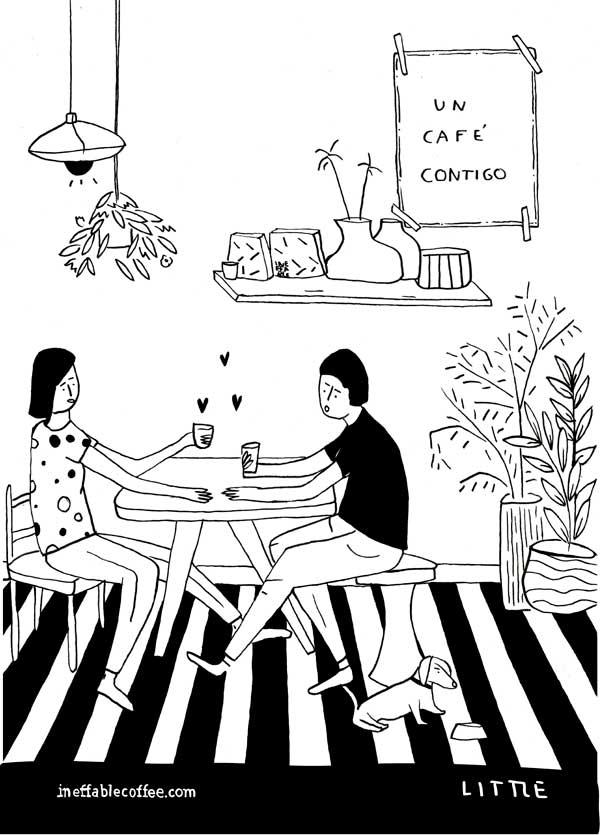Huila | |
1,750m. | |
Sidra | |
Anaerobic Honey 60h | |
Nestor Lasso | |
Harvest 2022 |
Since then they have turned production around, focusing on creating micro-lots and improving processes. This has resulted in his coffees being used in competitions around the world, roasters seeking them out and a significant improvement in the quality of their life.
Farm El Diviso
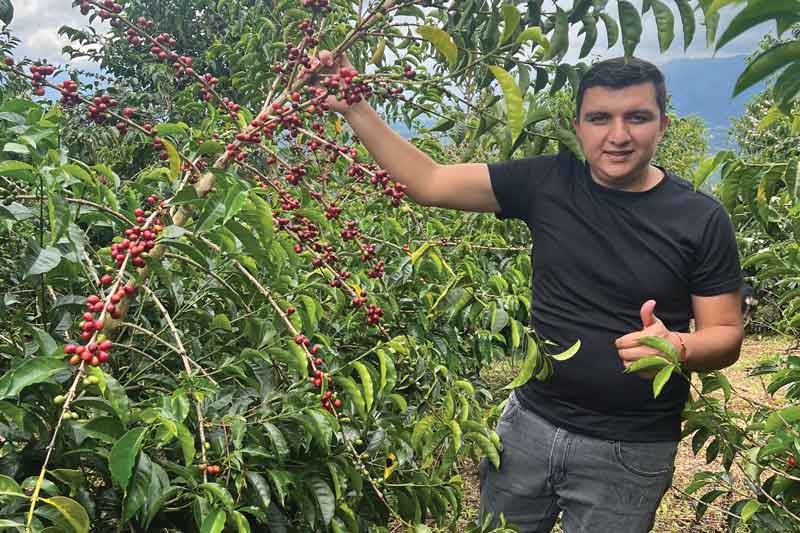
Nestor and Adrian have joined forces with another young neighbour, Jhoan Vergara, from the Las Flores farm, to help each other grow and process better coffees.
El Diviso farm is located near the municipality of Pitalito, south-west of Colombia, in the Huila coffee region. It is at an altitude of between 1,750 and 1,800 metres and has ideal conditions for growing specialty coffees.
Nestor and Adrian are the third generation of coffee farmers and the first to have turned production around to focus on quality rather than quantity. This has allowed them to make coffee farming a viable and dignified way of life.
Nestor Lasso, passion for coffee
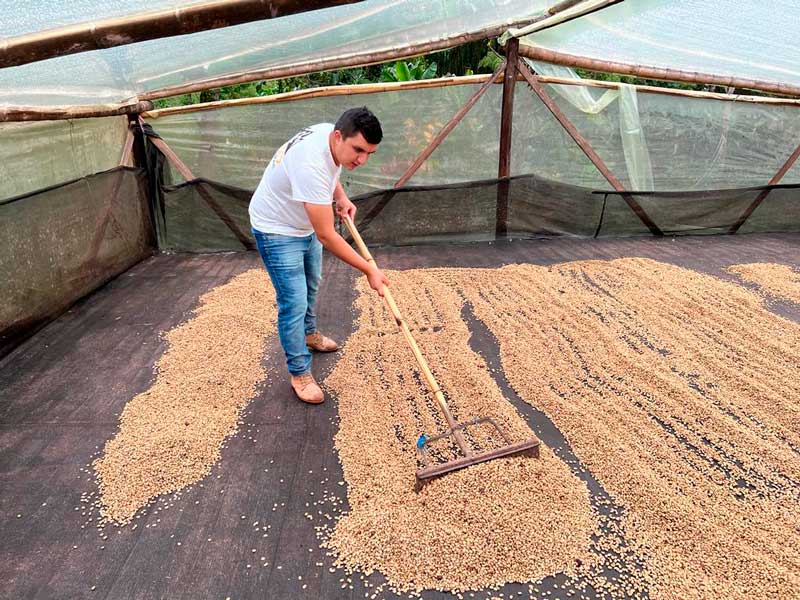
“In general, being a coffee producer is poorly paid and it is not very attractive. The only thing that allows producers not to starve is to eat the fruits and vegetables produced on the farm. In terms of material goods, we only have access to what is strictly necessary. Many young people therefore prefer to go to town to find an office job or a less physically demanding job because they think that the coffee is not worth it”.
Nestor found a way change this dynamic because his passion for coffee led him to strive to improve and try new ways:
“I have always had a passion for production. When I realised that specialty coffee offered a real possibility of economic development, and that in addition I could develop my knowledge of coffee production, and in particular the processes, I really got into it.”
Nestor and his brother Adrian benefited from a national program subsidised by the Colombian government to learn theoretical knowledge about growing and processing specialty coffee. But as he says: “The reality of the coffee farmer’s job is learned in the field.”
The process of this coffee Nestor Lasso Sidra 60 hours
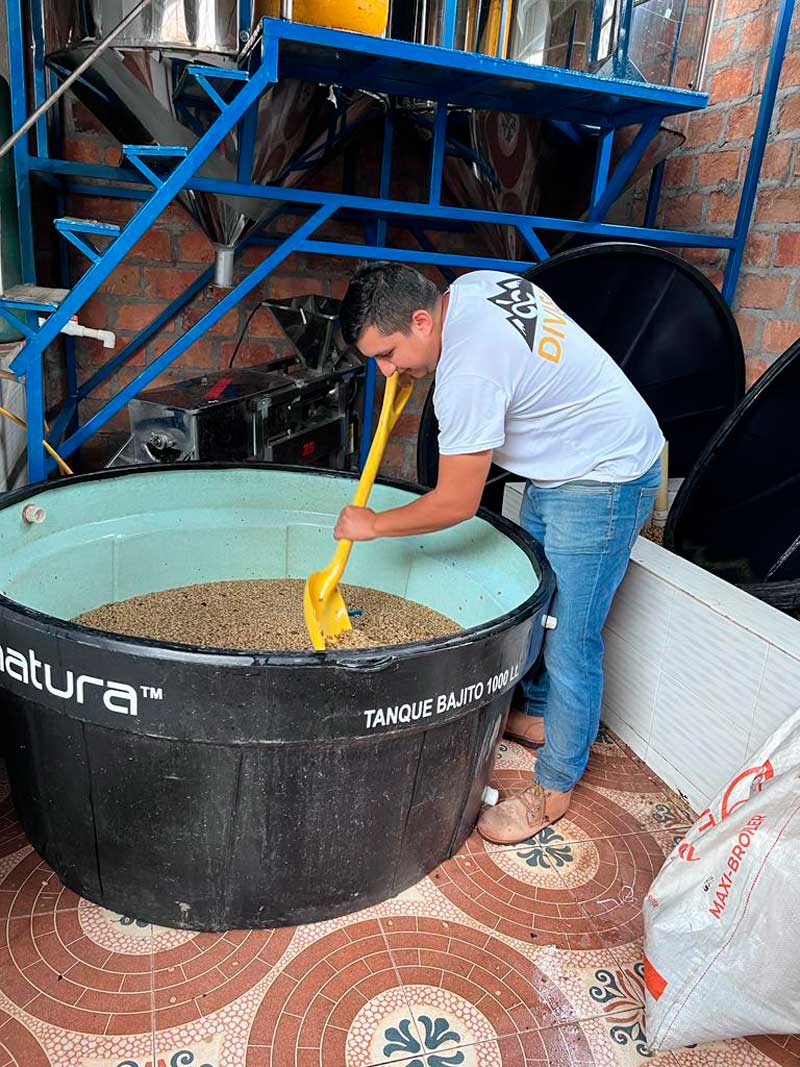
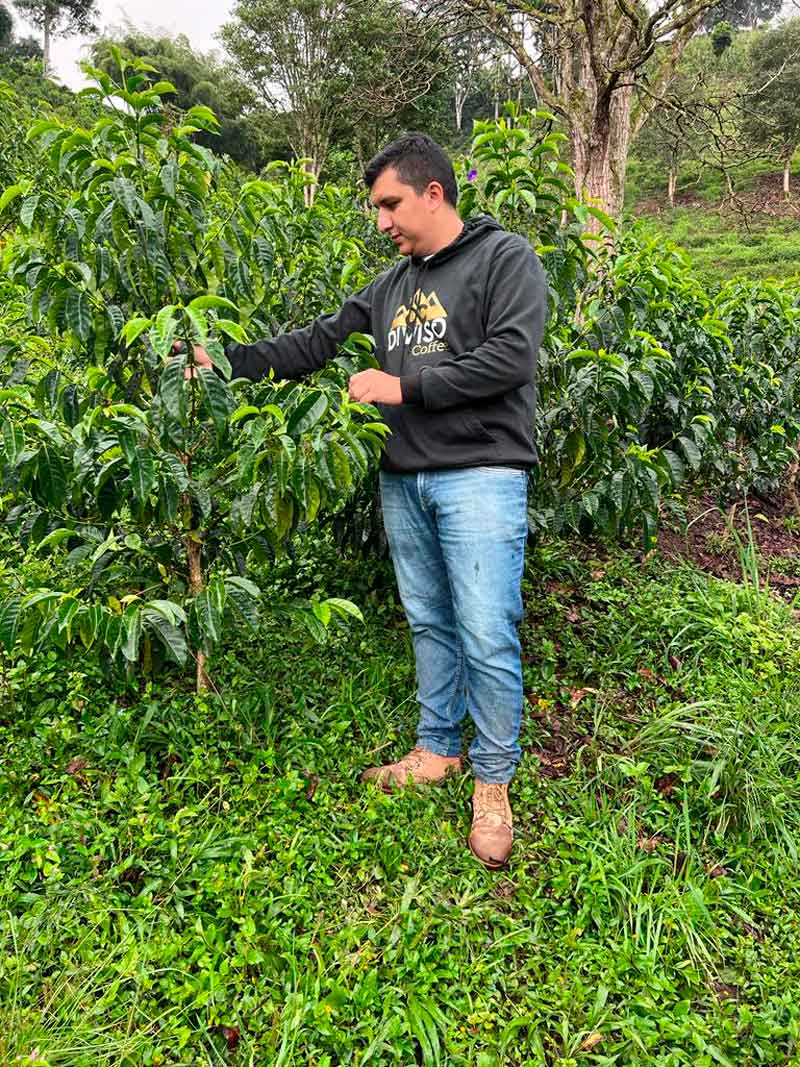
The batch that we bring to you is of the Sidra variety, a hybrid of Bourbon and Typica that seeks to combine the best of both. This lot has grown in the shade of native and fruit trees, which favours slower ripening.
The process applied is a variant of the Honey process adding fermentation times to highlight its qualities.
First, only the ripe cherries are collected and left to “oxidise” for 12 hours at a temperature of 25 degrees. That is, they are left to rest so that a natural fermentation begins.
The second step is an anaerobic fermentation in plastic bags at 16-18 degrees for 60 hours. This is a fermentation where the oxygen flow is controlled.
The third step is to pulp the cherries but leaving the mucilage (which is why we say it is a “honey process”) and leave it to “oxidise” for another 32 hours submerged in a juice extracted from the cherries pulp.
The last step is to dry them between 20 and 29 days at a maximum temperature of 30 degrees, until the humidity does not exceed 11%.


